The widely-acclaimed play made film A Raisin in the Sun (1961) by playwright Lorraine Hansberry is the first drama by an African American woman to be produced as a play on Broadway in New York City, New York. The film and play resonate with its examinations of the value and purpose of dreams, the need to fight racial discrimination, and the importance of family. Cultural heritage is a further exploration through the narrative.
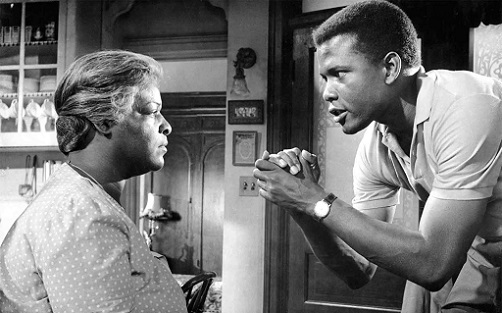 (Claudia McNeil as Lena Younger, left, and Sidney Poitier as Walter Lee Younger in the film A Raisin in the Sun).
(Claudia McNeil as Lena Younger, left, and Sidney Poitier as Walter Lee Younger in the film A Raisin in the Sun).
Set in the southside of Chicago, Illinois of the 1950’s, the film A Raisin in the Sun follows three generations of a poor family of African Americans named Younger. Over the course of a few weeks with the Youngers, we learn that family matriarch Lena Younger, as portrayed by Claudia McNeil, is due a $10,000 insurance payment following the death of her husband immediately preceding the beginning of the film. The larger family each sees this insurance payment as the seed money for the collective members of the Younger family. Walter Lee Younger, as portrayed by Sidney Poitier, is the eldest male among the remaining Youngers after his father has passed away.
 (Ruby Dee as Ruth Younger, left, and Sidney Poitier as Walter Lee Younger in the film A Raisin in the Sun).
(Ruby Dee as Ruth Younger, left, and Sidney Poitier as Walter Lee Younger in the film A Raisin in the Sun).
Walter Lee Younger is married to Ruth Younger, as portrayed by Ruby Dee. Their child Travis Younger, as played by Steven Perry, slept in the living and was subjected to differing views for how to be raised between Walter Lee and Ruth as well as between Lena and Ruth. Lena dreams of moving out of the apartment into a home. Walter Lee dreams of investing in a bar to earn a way for his family and himself. Lena was sensitive to these dreams, her own dreams for home ownership, gardening, and the dream of her other daughter Beneatha. A $10,000 insurance payment could not fulfill all the dreams of the family, yet Lena looked to weigh the differing options the family had.
 (Steven Perry as Travis Younger, left, and Sidney Poitier as Walter Lee Younger in the film A Raisin in the Sun).
(Steven Perry as Travis Younger, left, and Sidney Poitier as Walter Lee Younger in the film A Raisin in the Sun).
Beneatha Younger, the unmarried younger sister to Walter Lee and daughter of Lena, dreams of becoming self-sufficient, independent, and a doctor. As portrayed by Diana Sands, Beneatha also aspires to connect to her African past as she feels the familiarity begotten by family, poverty, and an absence of a clear path to upward mobility through merit restricting. Beneatha explores this outside the family through budding relationships with Joseph Asagai and George Murchison.
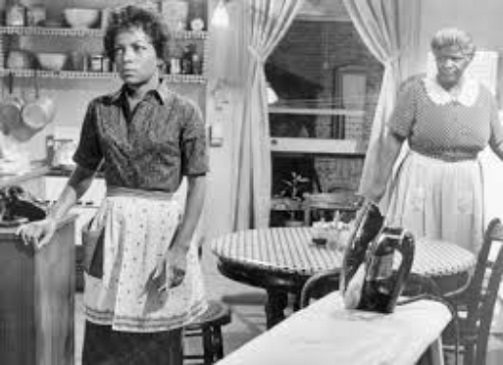 (Diana Sands as Beneatha Younger, left, and Claudia McNeil as Lena Younger in the film A Raisin in the Sun).
(Diana Sands as Beneatha Younger, left, and Claudia McNeil as Lena Younger in the film A Raisin in the Sun).
Joseph Asagai, as portrayed by Ivan Dixon in A Raisin in the Sun, was an African student in America courted the interests of Beneatha. Asagai gifts meaningful and hard to acquire trinkets that are both useful to and desired by Beneatha — such as the Nigerian robes he obtained from home through female members of his own family. Beneatha is taken with the manner and cultural significance she discerns in this as well as in the cultural awareness she feels in being exposed to these items and meaning that she would otherwise miss. Walter Lee and Beneatha quarrel at notions in this while aiming for different, conflicting versions of their own individual needs.
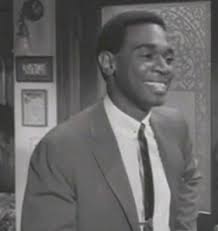 (Ivan Dixon as Joseph Asagai in the film A Raisin in the Sun).
(Ivan Dixon as Joseph Asagai in the film A Raisin in the Sun).
George Murchison also pursues Beneatha while representing an educated, wealthy counterpoint to both the aspiring Joseph Asagai and Walter Lee Younger. Walter Lee lacked the education and wealth of George, though George and Walter Lee at certain points share a self-hatred. George’s narrative in A Raisin in the Sun consistently manifests itself as anger towards other blacks. George offers no gifts or heritage for Beneatha, and while she accepts his advances she sees no future in a relationship for George and herself. As the larger question of the disposition of the $10,000 insurance payment reveals itself in the film, Beneatha’s character and feelings for suitor George Murchison, suitor Joseph Asagai, and brother Walter Lee Younger change with new revealed perspectives.
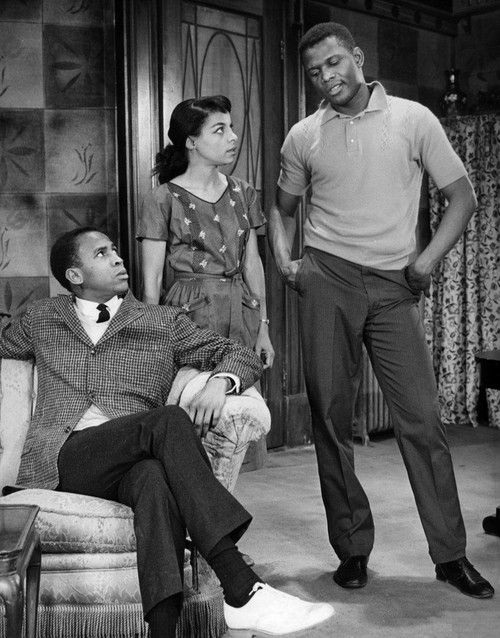 (Louis Gossett Jr. as George Murchison, left, Ruby Dee as Ruth Younger, center, and Sidney Poitier as Walter Lee Younger in the film A Raisin in the Sun).
(Louis Gossett Jr. as George Murchison, left, Ruby Dee as Ruth Younger, center, and Sidney Poitier as Walter Lee Younger in the film A Raisin in the Sun).
We learn that Lena Younger has invested a down payment on a home in an all white neighborhood with a portion of the $10,000. Lena entrusts a larger portion of the money for deposit into the bank for Beneatha’s along with pursuing Walter Lee’s aspirations of starting a business. Walter Lee foregoes that direction, and passes the money to a supposed business partner who, instead of putting the money down for a business, absconds with the money. Walter Lee feels swindled. Beneatha feels swindled in both the lost money and in familial betrayal by her brother and mother. The whole family feels betrayed when a “welcoming committee” from the neighborhood Lena bought the Youngers into aimed to purchase the home from the Youngers to an African American family would not move into a neighborhood that had only Caucasian families.
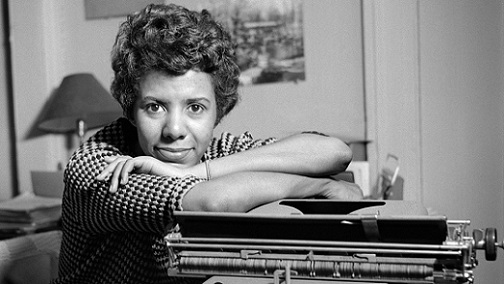 (Lorraine Hansberry, playwright for the play A Raisin in the Sun).
(Lorraine Hansberry, playwright for the play A Raisin in the Sun).
The film resolves with Lena Younger encouraging Walter Lee Younger to declare what the family will do with regards to the racially motivated offer to sell the newly acquired familial home. Lena Younger asks Walter Lee to declare the future for all to see, including Ruth, Travis, Beneatha, and the man making the degrading attempt to dissuade the Youngers from moving. That Walter Lee affirms the importance of standing up to racial discrimination through dreaming at a familial level on familial dreams offers the redeeming message of A Raisin in the Sun. It is in this larger message, and in the journey of having offered a drama that makes this message compelling, that I offer the film a rating of 4-stars on a scale of one-to-five stars.
Matt – Saturday, June 1, 2019
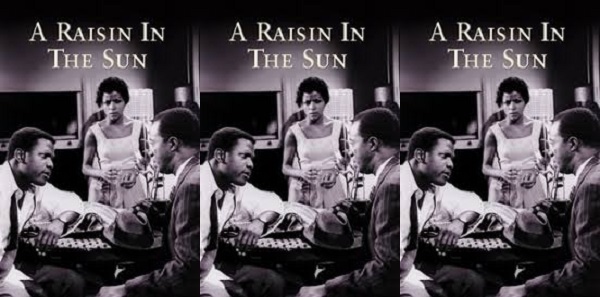
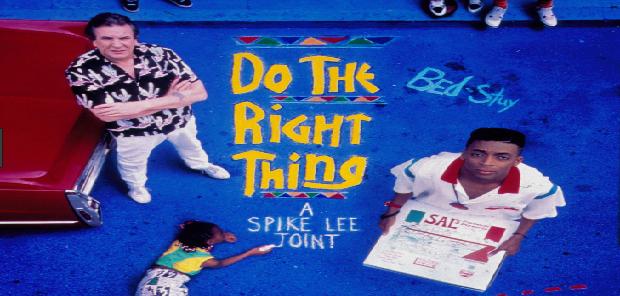
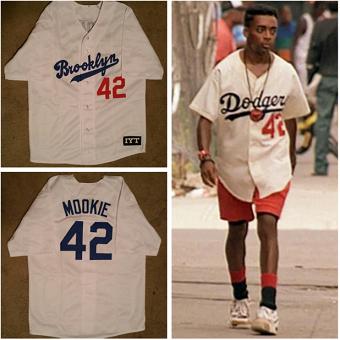 (Spike Lee as Mookie in Do The Right Thing)
(Spike Lee as Mookie in Do The Right Thing)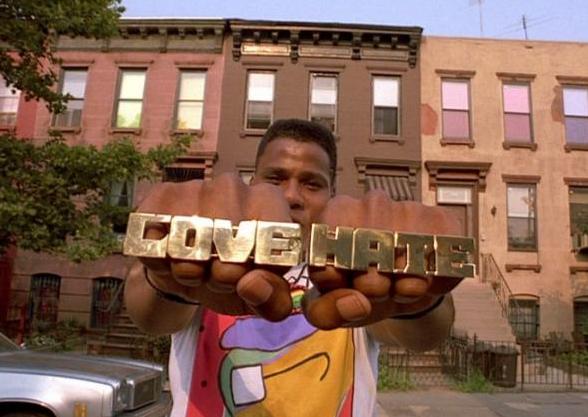 (Love and Hate for Radio Raheem as played by
(Love and Hate for Radio Raheem as played by